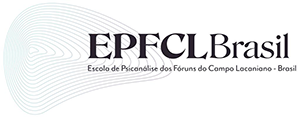Transience value is rarity value in time
DOI:
https://doi.org/10.31683/stylus.vi40.529Keywords:
Psychoanalysis, Transience, MourningAbstract
In Western culture, there is a tendency to put death aside and exclude it from the calculations of life. At the base of this trend, there is a structural factor: death is one of the names of the impossible to represent. Extreme situations, such as pandemics, expose our malaise in the face of the fragility of our human condition and so many other things that we used to consider solid and conquered. Realizing the finitude of things and loved ones can, in effect, awaken in us a painful prostration, despair or revolt against this fact. Are there any other ways of responding to the inexorable transience of life and the things we enjoy? By what means could we carry out the transitory of objects as a rarity value in time so poetically described by Freud?
Downloads
References
Allouch, J. (2004). Erótica do luto no tempo da morte seca (Procopio Abreu, Trad.). Rio de Janeiro: Companhia de Freud. (Trabalho original publicado em 1994)
Campos, A (Org.). (2013). Coisas e anjos de Rilke (Augusto de Campos, Trad.) (p. 346). São Paulo: Perspectiva.
Freud, S. (2010a). Considerações atuais sobre a guerra e a morte (Paulo César de Souza, Trad.). In S. Freud. Obras completas (vol. 12, pp. 209-246). São Paulo: Companhia das Letras. (Trabalho original publicado em 1915)
Freud, S. (2010b). A transitoriedade (Paulo César de Souza, Trad.). In S. Freud. Obras completas (vol. 12, pp. 247-2520). São Paulo: Companhia das Letras. (Trabalho original publicado em 1916)
Freud, S. (2010c). Luto e melancolia (Paulo César de Souza, Trad.). In S. Freud. Obras completas (v. 12, pp. 170-194). São Paulo: Companhia das Letras. (Tra- balho original publicado em 1917)
Freud, S. (1988). Sobre a transitoriedade. In J. Strachey (Ed.). Obras Completas (vol. XIV, pp. 345-348). Rio de Janeiro: Imago. (Trabalho original publicado em 1916) Freud, S. (2003). Letter from Freud to Ludwig Binswanger, April 11, 1929. In G. Fitchner (Ed.). The Sigmund Freud-Ludwig Binswanger Correspondence 1908-
New York: Other Press. (Trabalho original publicado em 1929)
Gay, P. (1989). Freud, uma vida para nosso tempo. São Paulo: Companhia das Letras. Lacan, J. (2002). O seminário, livro 6: O desejo e sua interpretação (Publicação não
comercial). Porto Alegre: Associação Psicanalítica de Porto Alegre. (Trabalho original publicado em 1958)
Lehmann, H. (1966). A conversation between Freud and Rilke. The Psychoanalytic Quarterly, 35(3), pp. 423-427.
Nagy, G. (1999). The best of the Achaeans: concepts of the hero in archaic greek poetry. Baltimore, USA: The John Hopkins University Press.
Rilke, R. M. (2013). Diz-me poeta. In A. Campos (Org.). Coisas e anjos de Rilke (p. 346). (Augusto de Campos, Trad.). São Paulo: Perspectiva.
Soler, C. (2007). De un trauma al Otro. Medellin, Colombia: Asociación Foro del Campo Lacaniano de Medellín.
Soler, C. (2012). O inconsciente, o que é isso? (Cícero Alberto de Andrade Oliveira e Dominique Fingermann, Trad.) São Paulo: Annablume.
Downloads
Published
How to Cite
Issue
Section
License
Ao encaminhar os originais, os autores cedem os direitos de publicação para STYLUS.
Os autores assumem toda responsabilidade sobre o conteúdo do trabalho, incluindo as devidas e necessárias autorizações para divulgação de dados coletados e resultados obtidos, isentando a Revista de toda e qualquer responsabilidade neste sentido.



